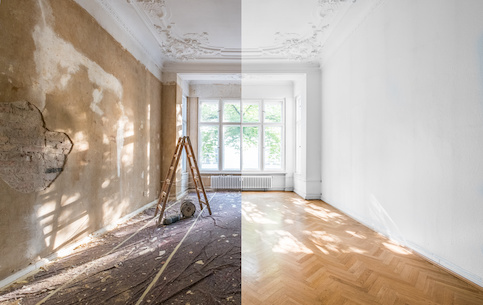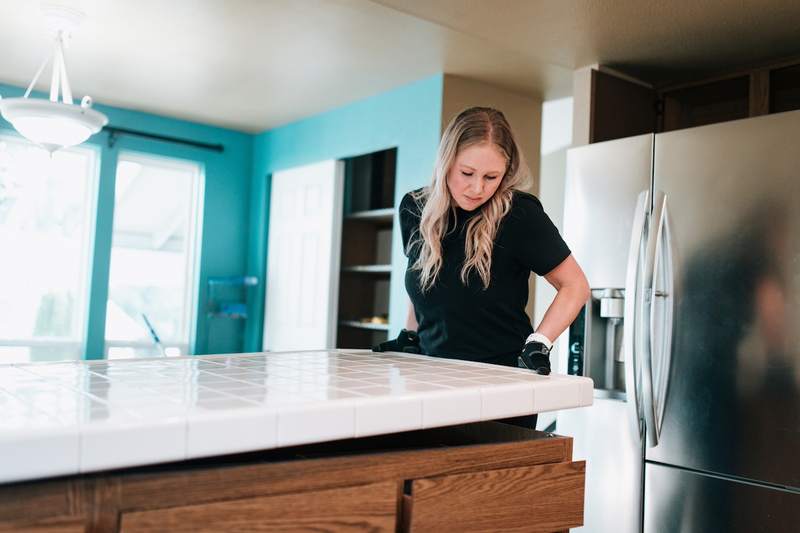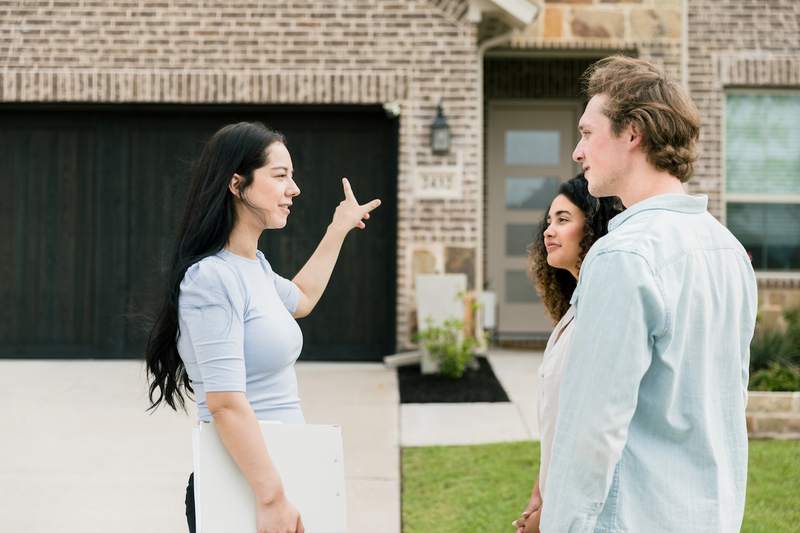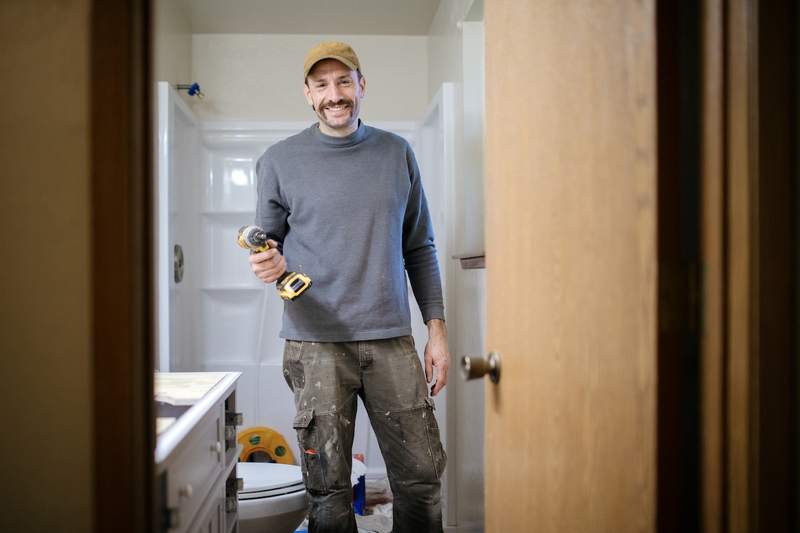Zombies are corpses that have been somehow re-animated after death to stalk the living and eat their brains, as anyone can tell you from watching Night Of The Living Dead, The Walking Dead, 28 Days Later or even Micheal Jackson’s famous “Thriller” music video. But what’s scarier is when mortgages come back from the dead to surprise unsuspecting borrowers, just like Jason Voorhees in Friday The 13th. Just in time for Halloween, we explain the real-life threat of zombie mortgages and how you can avoid becoming their next victim.
Key Takeaways:
- A zombie mortgage is a second mortgage loan that a borrower thought was settled but has returned to life.
- Lenders sell these unpaid loans to debt collectors, who come after borrowers with interest and fees tacked on to the original balance.
- Homeowners may think this debt has been rolled into their primary mortgage or forgiven – only to be haunted by it years later.
What Is A Zombie Mortgage?
A zombie mortgage is a home loan you thought was paid off or forgiven but is still active. This can happen when lenders write off a debt, such as a second mortgage, and sell it to debt collectors. The borrower stops receiving statements or other communication and assumes the matter is settled. Years later, a debt collector that owns the lien contacts you and demands payment. Because the debt was presumed dead and has been resurrected, it’s sometimes called a zombie second mortgage.
“If you have never paid off the particular mortgage, it is likely a zombie mortgage,” says D.J. Olojo, managing director of ASO Custom Homes in Atlanta and host of The Foreclosure Fix podcast. “You might not have paid on the mortgage for numerous years, and it could have even been charged off. The mortgage is still an active lien on the property until a mortgage satisfaction is recorded in the public records of the county where the property is located. You can order a title search for around $100 and see all the liens associated with a property.”
What’s Your Goal?
Buy A Home
Discover mortgage options that fit your unique financial needs.

Refinance
Refinance your mortgage to have more money for what matters.
Tap Into Equity
Use your home’s equity and unlock cash to achieve your goals.
Where Do Zombie Mortgages Come From?
Discovering you have a zombie mortgage can be confusing and haunting. You may wonder where this came from, especially if you pay your mortgage on time. Zombie mortgages are usually second mortgages that get lost in the shuffle. Before the 2008 housing crisis, lenders often issued borrowers two mortgages for the same property instead of a down payment. For example, the primary mortgage might be for 80% of the purchase price, and the second mortgage would be for 20%. In other cases, the homeowner may have taken out a second mortgage in the form of a home equity loan or line of credit.
Here are some ways a zombie mortgage can manifest:
- You modified your first mortgage and incorrectly assumed your second mortgage was rolled into it.
- You stopped paying your second mortgage, and the lender chose not to foreclose at the time or start but did not complete the foreclosure process.
- You incorrectly thought you’d settled your second mortgage along with the primary via a short sale, bankruptcy proceeding or deed-in-lieu of foreclosure.
- The lender foreclosed on the first mortgage but not on the second.
If you default on your second mortgage, the lender can start foreclosure even if you’re current on your primary loan. Some lenders will write off such loans as uncollectible or sell them to debt collectors without notifying the borrower. In either case, the buyer assumes the debt has been settled because they no longer receive bills. The buyer also may incorrectly think the second mortgage debt was combined with their primary mortgage, forgiven, or discharged through bankruptcy.
Years can go by before the debt owner contacts the borrower with a demand for payment. It’s like the second mortgage came back from the dead! Even worse, the lender can threaten foreclosure if you don’t pay the outstanding debt with interest and fees. A true nightmare.
Ready To Become A Homeowner?
Get matched with a lender that can help you find the right mortgage.
Can I Lose My Home To A Zombie Mortgage?
Yes, if a zombie mortgage is a legitimate debt, its owner can foreclose on your home if you do not pay it back. Lenders and debt collectors can seek repayment within six years of your official date of default. If the lender chooses not to foreclose, you’ll still be on the line for the debt. Worse, these debt collectors often tack on steep retroactive interest and fees.
“You can most definitely lose your home to a zombie mortgage,” Olojo says. “The mortgage attached to your property is an active lien. The lender can foreclose on you. Until a satisfaction is recorded by the lender, there is always a risk of losing your home.”
Take The First Step To Buying A Home
Find a lender that will work with your unique financial situation.
How Common Are Zombie Mortgages?
Collection on zombie second mortgages has been growing. A 2024 NPR report found at least 10,000 zombie mortgages led to foreclosure activity over the previous two years in New York state. The report also found that at least 500 zombie mortgages were pending foreclosure in Maryland.
Most zombie mortgages originated in the years leading up to the 2008 housing crisis. Many loans were issued without sufficient underwriting, so when property values plummeted, many homeowners were left owing much more than their homes were worth.
With so many mortgages underwater, foreclosure on second mortgages was too costly for many lenders to be worthwhile. Instead, they sold these past-due second mortgages to debt collectors. When housing values increased dramatically as the COVID pandemic hit, debt collectors started coming for their money – and added interest and penalties.
“Zombie mortgages are widespread,” Olojo says. “When banks charge off loans or when banks go out of business, many loans become zombie mortgages. These mortgages get bundled up and sold to other banks, hedge funds and investors. Some of these institutions work the loans and try to get the borrowers to pay off. Other institutions shelve the files and wait for the borrower to sell or refinance them. Because these liens are in the public record, they will have to be addressed at some point.”
Signs You Might Have A Zombie Mortgage?
Here are some red flags that suggest you watch out for a zombie mortgage:
- You still receive bills. If you’re still receiving bills for a second mortgage that you thought was paid off, it could mean the loan has not been settled.
- Check public records. Your county recorder keeps public property records you can search to see if there is a second mortgage or notice of default on your home.
- Review your tax returns. If your loan is forgiven, then it’s typically tax deductible and you’ll receive a 1099-C form from the IRS. If you did not receive this form, the loan could still be unresolved.
- Check your loan modification paperwork. If you modified your first mortgage, confirm whether your second mortgage was forgiven or rolled into the first. Check whether that remaining debt ended up as a new second mortgage.
- You have incomplete foreclosure paperwork. If your first mortgage lender starts the foreclosure process but does not complete it, the debt will still remain in your name. If foreclosure is completed and the property is sold, the second mortgage may still exist as unsecured debt.
How To Escape A Zombie Mortgage
If you think you have a zombie mortgage, it’s important to understand your rights. Debt collectors are legally required to prove the debt is legitimate within five days of contacting you. Here are some steps to take:
- Verify whether the debt is real. The debt collector must tell you specific information, including the amount of debt, the name of the creditor, a description of your rights, and how you can dispute it.
- Follow guidelines on how to communicate with debt collectors. The Consumer Financial Protection Bureau has sample letters for how to dispute a debt or get more information about it.
- Consult an attorney. If there is a statute of limitations on your debt, it may have expired. Some states also set time limits on collecting mortgage debt, and some state laws protect against foreclosure due to old mortgage debt. A lawyer can help you determine whether you’re off the hook because too much time has passed.
- Borrow against your equity to pay it off. If the debt is real but you’ve avoided foreclosure, you can borrow your equity with a home equity loan or line of credit to pay it.
- Loan modification. Another way to pay off a zombie mortgage is to modify your primary mortgage and roll the additional debt into its principal.
- Personal loan. If you need to borrow money to pay it off but don’t want to touch your equity, you could take out a personal loan instead. Just beware that personal loans typically come with higher interest rates.
- Consider a deed-in-lieu of foreclosure. A deed-in-lieu of foreclosure is a way for borrowers to turn over ownership of their home to the lender to avoid foreclosure. This can help homeowners with zombie mortgages avoid being held personally liable for the debt.
- Short sale. A short sale is a way for homeowners with underwater mortgages to avoid foreclosure by selling the home for less than the full amount owed on the mortgage.
“You must treat a zombie mortgage with the same respect as any other active lien,” Olojo says. “After all, they can foreclose on your property.”
Bottom Line
A debt collector contacting you about a zombie second mortgage can be quite a scare. First, you should figure out whether the debt is real by reviewing your paperwork and checking public records. If you’re uncertain, you can ask a lawyer to guide you through your options. If the debt is real, it will need to be dealt with one way or another to avoid losing your home through foreclosure.

Rory Arnold
Rory Arnold is a Los Angeles-based writer who has contributed to a variety of publications, including Quicken Loans, LowerMyBills, Ranker, Earth.com and JerseyDigs. He has also been quoted in The Atlantic. Rory received his Bachelor of Science in Media, Culture and Communication from New York University. He also completed the SoFi/Coursera Fundamentals of Personal Finance Specialization consisting of five courses: Introduction to Personal Finance, Saving Money for the Future, Managing Debt, Fundamentals of Investing, and Risk Management in Personal Finance.












